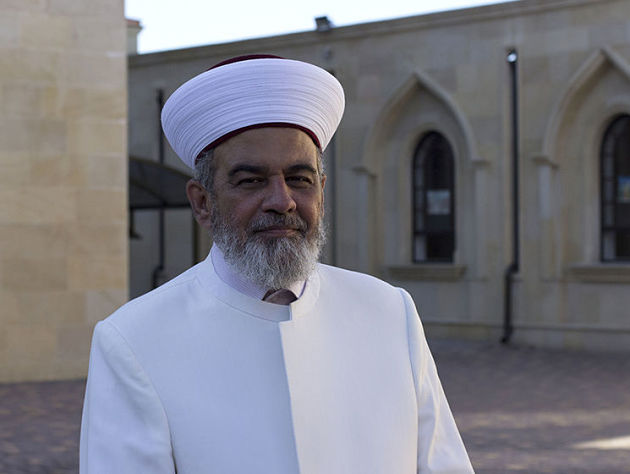Not long ago, the so-called Mufti of Ukraine, Ahmed Tamim (pictured), who is recognized as such only by the followers of the Takfiri group “Habashites”, made several controversial statements that were essentially directed against the Muslims in the country. While Ukrainian patriotic forces are fighting to grant citizenship to all foreign volunteers who have come to defend the country, including Muslim volunteers, the “mufti” warned Ukrainian society against them. In particular, he stated: “Many of those who come to fight on the side of Ukraine are not driven by high motives of justice and love for our country, their goals are very pragmatic – they want to get real combat training and experience in real combat operations. For extremist organizations, this is an important and valuable skill that can only be acquired in a real war. This can lead to a situation similar to Syria or the wars in Afghanistan and Yugoslavia, where extremists were divided into factions and fought each other while the ordinary population of the country suffered”.
However, the real extremist groups in the Islamic world actually condemned those Muslims who went to defend Ukraine, accusing them of supporting a “taghut” and therefore of disbelief. Does the “Mufti” know about this? Most likely, yes, at least he should know if he undertakes to comment on such issues. But the problem is that according to his criteria, all Muslims who do not adhere to the approach of his group, including the obligation of takfir (accusation of disbelief) of Ibn Taymiyyah and his followers, as well as the takfir of those who refuse to issue takfir to them, are considered extremists.
As for the warnings about the possibility of factional wars in Ukraine, this does not stand up to criticism. Such factional wars occurred in Syria or Afghanistan only because each group fought independently, which eventually led to conflict. However, volunteers who come to Ukraine have no other opportunity to take part in combat operations than to join either the Armed Forces of Ukraine (AFU) or volunteer units integrated into the National Guard or other military structures of the country.
However, when it comes to the substance of the matter, the Mufti’s argument is completely untenable. After all, he expressed these ideas in response to a journalist’s question about the threat of ISIS infiltration in Ukraine. However, it is well known that not only is there not a single country in the Islamic world that supports this organization (considering all existing states in it as apostate), but they are actively fighting its financing, propaganda and supporters.
Therefore, it is likely that under the pretext of fighting ISIS, the Mufti wants to limit Ukraine’s interaction with all countries friendly to his long-time enemies, the Muslim Brotherhood. Unlike Russia, which many suspect of having close ties (including intelligence) with these structures, this peaceful educational and political organization, or rather its followers, act entirely legally in Ukraine, much to his chagrin. Countries such as Qatar or Turkey, with a stretch even Kuwait, can be considered “Brotherhood” countries, which are among the most attractive for investment in Ukraine. Not to mention the strategic importance for Ukraine of maintaining good relations with Ankara. Of course, Saudi Arabia or the United Arab Emirates could be preferred instead, but according to the Mufti’s criteria, they are ruled by “open Wahhabis”. So what’s left? It can be assumed that Iran, with which the Mufti has had friendly relations for a long time and towards whose followers of Shiite ideology he shows tolerance, is doubly surprising in view of his intolerance towards all opponents within the Sunni sphere.
In general, the Mufti can even be pitied in a way today, because everything he expresses support for, such as Iranian influence, is directly hostile to Ukraine’s interests, while what he tries to present as a threat is in line with these interests. Before the Revolution of Dignity in 2014 and subsequent events, this could go unnoticed, both because of the incomprehensibility of the internal processes of the Muslim community in Ukraine to external observers and because of the uncertainty of its political course – as an appendage of Russia or as an independent country. However, now that clarity has been established on this issue, it is absolutely clear that independent Ukraine, its Muslims, and a large part of the Sunni world are on one side, while the Mufti of the Habashites Tamim, Iran, and Putin’s Russia, whose orders he so desires to spread in his country of residence, are on the other.

